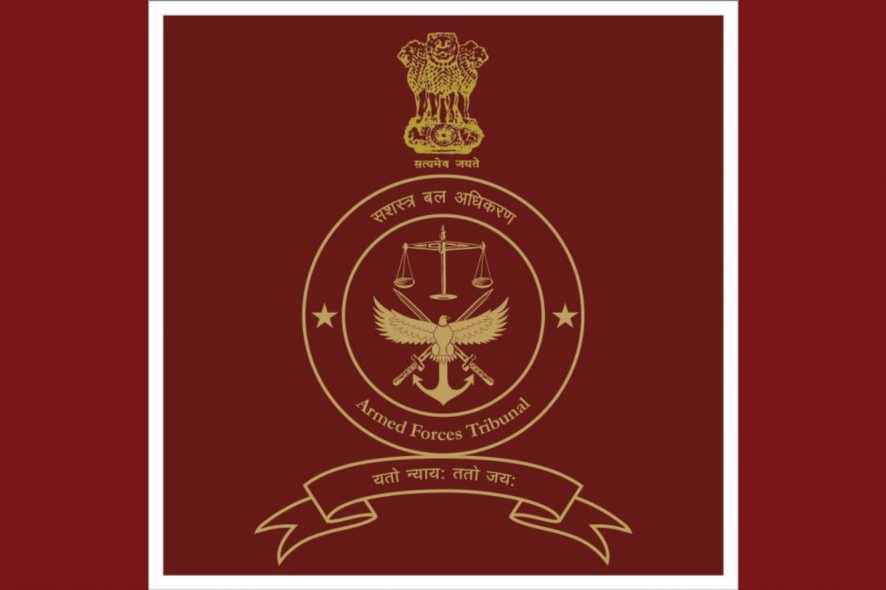Armed Forces Tribunal (Lucknow Bench): The Division Bench of Justice Umesh Chandra Srivastava, Member (J) and Vice Admiral Abhay Raghunath Karve, Member (A) held that a cadet is akin to a probationer; hence, the employer has a right to discharge a Cadet who is not meeting the medical standards required for military service/training.
Factual Background
The applicant joined Officers Training Academy (OTA), Chennai on 05-04-2012 as a Lady Cadet; where she was available for training only for 19 days and was continuously absent from training from 18-04-2012 to 19-11-2012.
Later on, the applicant was invalided out from service in low medical category due to the following disabilities:
- “Persistent Somatoform Pain Disorder” at 40% for life; and
- “Non-Supportive Ottis Media (LT) With Mild Hearing Impairment”, at 6-10% for life
The disabilities were considered as neither attributable to nor aggravated by military service. Therefore, the claim of the applicant for ex-Gratia payment was rejected. Similarly, the first and second appeals of the applicant were also rejected.
The respondent contended that the applicant’s claim of alleged development of disability (hearing impairment) due to pressure of military training was incorrect and unjustified since cadets are neither subject to hard physical or mental toughness training nor put through weapon training during their initial phase of training in the junior terms. A gradual and easy start is given to all new cadets to enable them to develop their capability to withstand tough military training in later phases of their training.
Grievances of the Applicant
As per the applicant, she was under stress and strain of military training which led to the occurrence of the injury. Therefore, both the disabilities should be considered attributable to or aggravated by military service and she should be paid the disability pension and Ex Gratia accordingly.
The applicant submitted that she had applied for women entry of Short Service Commission (Technical) and at the time of medical board after Services Selection Board (SSB), she was declared temporary unfit due to Chronic Ottis Media (LT) with mild hearing impairment. Later on, after being operated Chronic Ottis Media (LT), she was declared fit in SHAPE-1 by the Army Medical Board. Thereafter, she joined OTA on 05-04-2012.
Further, the applicant claimed that in May 2012, due to pressure of military training, she had developed a relapse of Chronic Ottis Media (LT) with mild hearing impairment and was treated first at MH Chennai and then at Command Hospital, Air Force, Bangalore, and was placed in medical category H-2 (Temporary) on the recommendation of ENT Specialist.
Evidently, it was in June 2012 that the applicant was diagnosed with “Persistent Somatoform Pain Disorder” and was recommended to be medically invalided out of service in low medical category S-5.
Findings and Conclusion
The Tribunal relied on Narsingh Yadav v. Union of India, (2019) 9 SCC 667, wherein the Supreme Court had held that mental disorders cannot be detected at the time of recruitment and their subsequent manifestation does not entitle a person to disability pension unless there are very valid reasons and strong medical evidence to dispute the opinion of Medical Board.
Noticing that the applicant had attained the training for a brief period of 15 days, the Tribunal affirmed the findings and opinion of the Medical Board and the Appellate Committee. The Tribunal held that a cadet is akin to a probationer and hence the respondents as an employer have a right to discharge a Cadet who is not meeting the medical standards required for military training/service. Therefore, the Tribunal upheld the opinion of the Medical Board that the applicant’s disability is neither attributable to nor aggravated by military service, and hence, she is not entitled to disability pension and Ex Gratia.
In view of the above, the Original Application was dismissed.
[Nira Chaudhary v. Union of India, Original Application No. 99 of 2021, decided on 28-04-2022]
Appearance by:
For the Applicant: Vinay Sharma holding brief of Col Y.R. Sharma (Retd), Advocate
For Union of India: Dr. Shailendra Sharma Atal, Central Govt Counsel
Kamini Sharma, Editorial Assistant has put this report together






